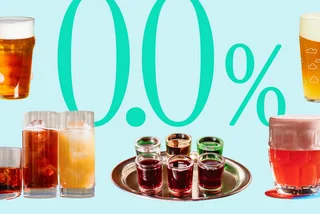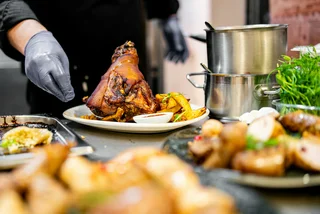Outdoor gardens at pubs and restaurants will reopen across the Czech Republic on May 17, but only for people who have passed a Covid test, been fully vaccinated, or recovered from the disease. How this should be enforced hasn’t been specified by the Health Ministry or Industry and Trade Ministry, so restaurants have come up with their own system. Most will simply ask if a patron has been recently tested and won’t look any further.
The government decided that outdoor spaces at pubs and restaurants can be open until 10 p.m., and maximum of four people can sit at one table if they do not live together. Tables must be 1.5 meters apart.
The negative test must be a maximum of 72 hours old. It can be a PCR or antigen test from a testing site, or a self-test. In that case, the guest should have a confirmation from the employer that they passed the test at work, or a solemn declaration that they underwent it at school, or they can do a self-test right in front of the garden.
A vaccination certificate, issued two weeks after the second dose of vaccine, or a certificate showing recovery from Covid within the past 90 days are also acceptable.
So far no guidance has been offers to restaurant owners. Prague Hygiene director Zdeňka Jágrová said there have been no instructions from the Ministry of Health, and that the hygiene office so far does not plan to make inspections. She added that the responsibility was on the customer.
One restaurant owner contacted by daily Mladá fronta Dnes (MfD) said they don’t plan to put a waiter in front of the garden to check the tests.
“At most, he will ask customers at the table if they have a valid test, and I can't imagine anyone saying no,” the restaurant owner, who declined to be identified, said.
Another restaurant owner told MfD that the restaurants are not inspection bodies, adding that it is up to officials and police, and not waiting staff, to enforce the guidelines. The owner said they would trust in the validity of any documents presented by patrons, and not give them a close examination. Many other restaurateurs said they would take a similar approach of trusting in the answers or documents given by the patrons.
An operator of a beer garden at a microbrewery said they would put leaflets on tables asking customers to leave if they do not have a valid Covid test, as the staff might be too busy to ask every patron.
A few pubs said they would have a staff member asking to see certification before patrons can enter or just as they sit down, and they would also have self-tests available on site for those who don’t.
Two of these bars – Super Panda Circus and Baru, který neexistuje – are in Brno, and run by the same company. Founder Jan Vlachynský said he was not yet sure if the self-tests would have a fee or be offered for free.
Minister of Trade and Industry Karel Havlíček said the monitoring of tests is similar to when young people first go to a pub. “There are countries where an ID must be presented when ordering alcohol for the first time. This is something similar. If the guest cheats, it's on them,” Havlíček told MfD.
People dining at an outdoor garden could potentially face a fine up to CZK 3 million for violating an extraordinary government measure. However, nobody has yet to received such a fine for non-compliance with the coronavirus rules. Fines given out so far for violations have been in the thousands of crowns.
Prague Hygiene’s Jágrová said the operating company of the restaurants could face administrative proceedings if they show a pattern of not checking for tests, and none of the patrons has a test.
Czech Police also announced after the state of emergency ended that they would no longer be enforcing rules for non-political gatherings in public. Some beer gardens have already been operating, for example at Prague’s Letná park, despite the ban on gatherings and public consumption of alcohol since there has been no enforcement.
Medical law expert Ondřej Dostál told MfD that the restaurant operator has no possibility to check the validity of any test that is provided by a customer. “I consider this regulation to be very problematic due to the issue of enforceability and, let's say, the already existing contradiction with the objective reality, when the gardens are already occupied by those people today,” Dostál said.












 Reading time: 3 minutes
Reading time: 3 minutes 































